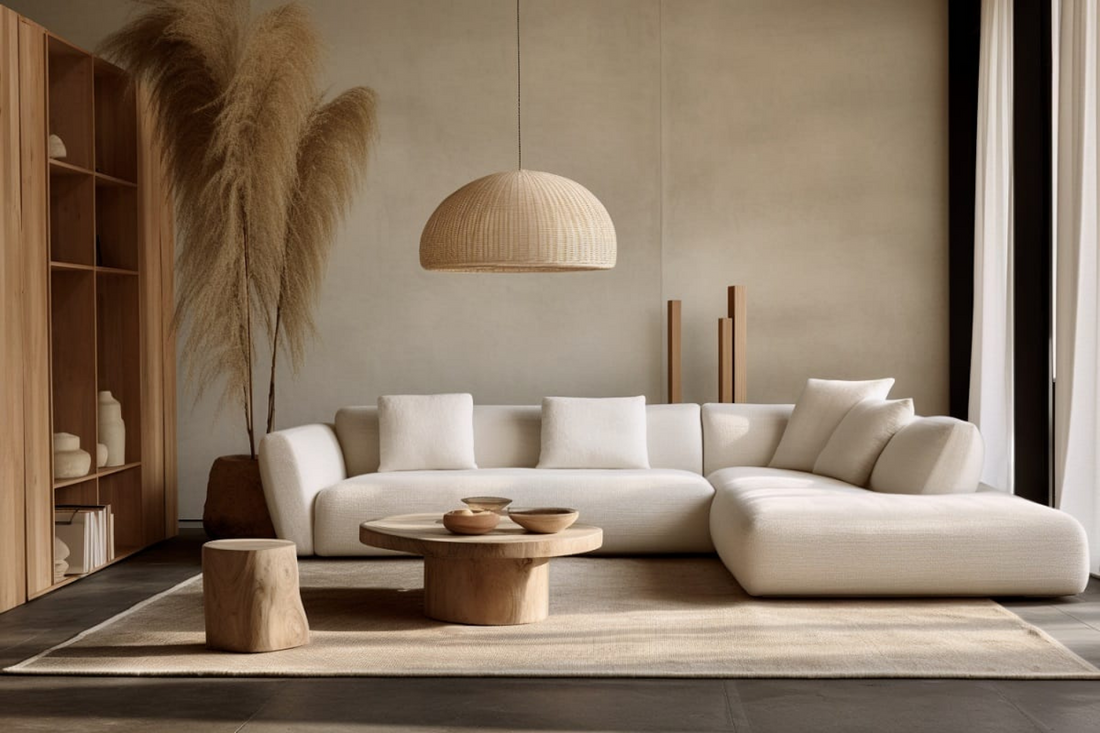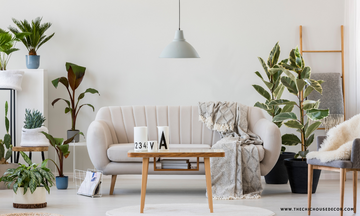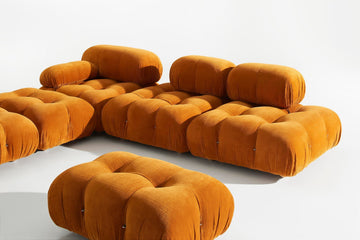The wabi-sabi interior design philosophy is a Japanese concept that embraces the imperfect and celebrates the beauty in flaws. The wabi-sabi philosophy means finding peace with the natural cycle of life, which includes birth, death and decay.
It can be as simple as admiring age spots on your hands or as complex as an entire space designed to reflect this philosophy.
The most important aspect of wabi sabi interior design is the ability to see beauty in imperfections, flaws and natural wear. Through exploring the meaning behind these 3 concepts, it becomes clear that this approach to interior decorating can be applied to every part of your life!
Wabi sabi design is all about creating a space that is warm and cosy, with an air of imperfection. It’s not about perfection or flawlessness, it’s all about embracing what life throws at you and your home.

Imperfection is an important part of life, and it’s something that we should all embrace. Here are just a few reasons why:
1. It’s natural. Imperfection is a part of nature, and it’s something that we can’t avoid. Embracing it helps us connect with the natural world and appreciate the beauty in life.
2. It makes life more interesting. Imperfection makes life more interesting, and it’s what makes us unique. When we accept faults, we can be authentic to ourselves.
3. It helps us to forgive ourselves. We all make mistakes, and that’s okay! When we accept imperfection, we can look at our mistakes and learn from them, making us more robust.
4. It helps to create balance. Imperfection is what allows us to find balance in life. We need both good and bad experiences to feel fulfilled emotionally.
5. It reminds us of impermanence. Everything changes over time
 Homio Decor's Wabi Sabi Collection
Homio Decor's Wabi Sabi Collection
Creating a wabi-sabi space in your home is all about embracing imperfection and creating a warm and cosy environment.
It’s not about striving for perfection, wabi-sabi is all about accepting the natural wear and tear that comes with life.
The most important aspect of wabi sabi interior design is the ability to see beauty in flaws, so don’t be afraid to experiment!
The most important part of creating a wabi-sabi interior is choosing your favourite imperfections to display.
This could be as simple as choosing a chair with a few dents in it, or as complex as collecting items from the past which have been passed down through generations.
The more flaws or signs of age you display, the more authentic your space becomes.

Homio Decor's Wabi Sabi Collection
Here are a few tips on how to create a wabi-sabi style at home:
Here are some of the wabi sabi interior design characteristics
Decluttering
Start by decluttering your space and getting rid of any excess furniture or belongings. This will create a more minimalist aesthetic and make the space feel more spacious.
Natural Materials
Choose natural materials and textures for your furniture and decor. Think wooden floors, woven rugs, wicker baskets and raw silk cushions.
Imperfections
Keep in mind that wabi sabi interior design is all about embracing imperfection, so don’t be afraid to leave the odd scratch or patch of dirt visible on your wooden furniture for example.
Textures
Vary textures in each room by using different materials for rugs, flooring and furniture. This will create a more interesting, gathered and eclectic space.
Muted Colours
Use muted colours and natural light to create a calm and relaxing atmosphere.
Greenery
Add plants and flowers to your home to bring life and nature into the space.
Artwork
Choose wabi-sabi or Japanese art to add a personal touch to the space. For example, look for art that can be hung unframed.
Raw Materials
Keep wabi-sabi in mind when choosing accessories and decor for each room: raw and unfinished stone and metal elements will create an earthy feel while wooden or wicker accessories will bring in warm and natural tones.
Patterns
Focus on texture and unique patterns: wicker or sisal mats, salt-glazed ceramics and patchwork quilts for example.
Lighting
Use lighting to create a cosy atmosphere: we love using wicker hanging lanterns suspended above dining tables, as well as soft lighting from candles and fairy lights.
Room By Room
Place wabi-sabi décor pieces throughout the home to create a wabi-sabi feel in each room. For example, wicker baskets work well in the bedroom or bathroom while assorted antique finds can be used for display in living spaces.







comment